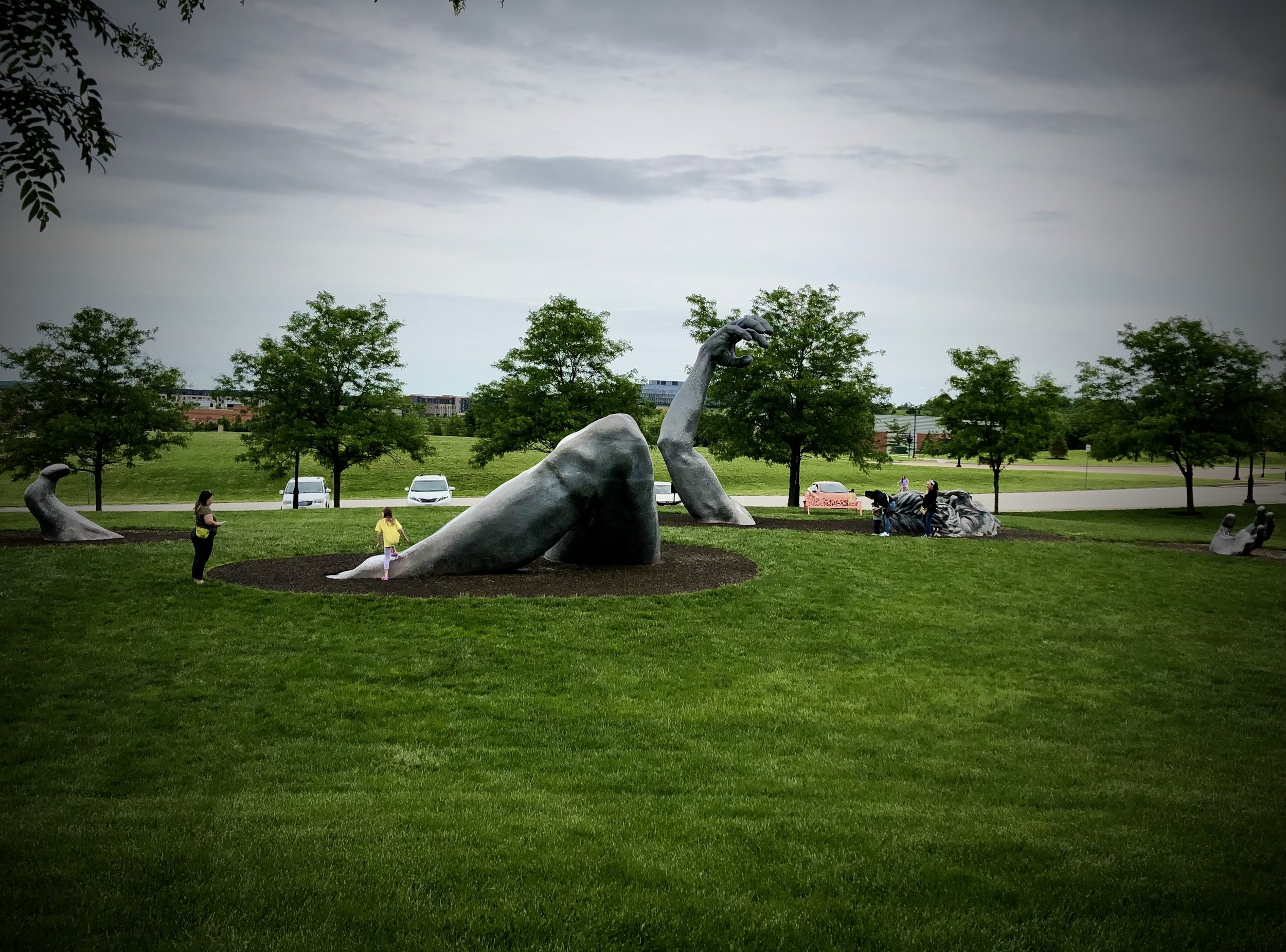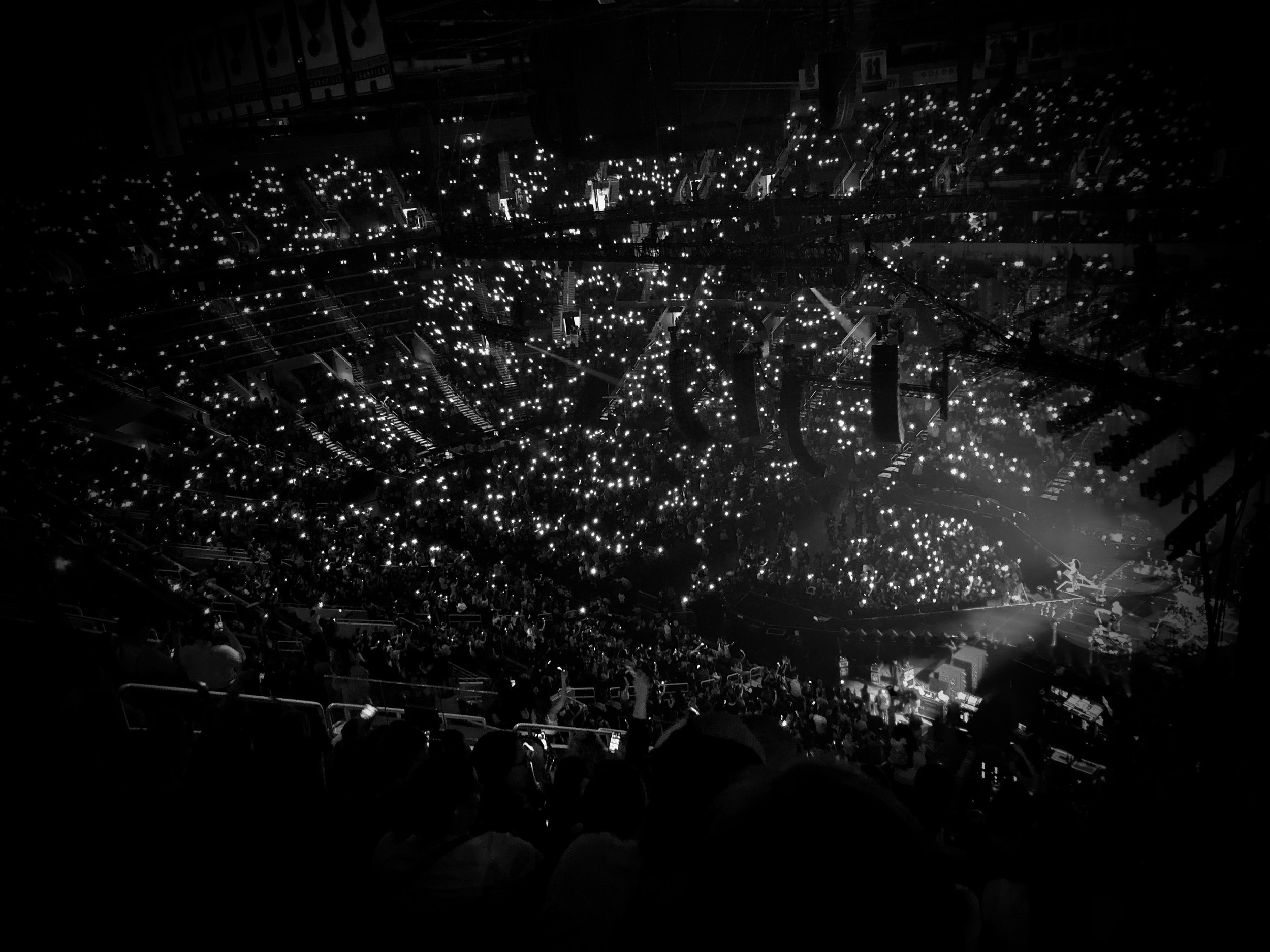
Revelation - Paragraph 1
Lastly, Roberts says that revelation is something universal. It seems that as I learn what is true at the micro level it is also true at the macro level. For instance, when I become aware of some newly discovered trampling I’m doing it is never just about my trampling, it is about how my actions hurt others, which is to say the whole. It never dawned on my before that I was trampling the whole. Simply put, at the end of the day it really does seem to be all about love. An easy way to check how I am doing on this front is that if I am unable to love at any given moment then there is trampling going on. The next step then becomes to investigate my shoes and remove them. Removing shoes has become a way of life. So has relaxing into a heart-mind aimed towards love. There are plenty of shoes left in the closet waiting for recycling. It is enough to get rid of today’s pair!

God - Paragraph 3
So how do I understand the concept that I, myself, am the barrier? It simply means that I take my stories, story lines, beliefs, illusions, and projections to be truth. Often these narratives are what I believe myself to be even though I know this is not the truth of who I am. How do I know I am not these things? Because when I am still these structures can be sensed and seen through for what they are; barriers or false beliefs. Barriers separate me from “That” and from myself and also occlude the beauty of others. These barriers cloud and distort reality causing fear, judgement and interior constriction. In other words, full participation with the moment is blocked because I’m caught up believing the barrier is true, that I must be the reaction or storyline vying for my attention.

God - Paragraph 2
I know I sense this childlike alignment in watching my two-year old granddaughter. There is no striving on her part, just an organic, innate capacity to be existence expressing itself in each moment, and doing it unapologetically. Knowing we are aligned is a process, one that must be (re)learned as an adult. One way I think of this learning process is my habitual, mechanical patterning, that I have armoured with over the years, must be softened and eventually released. This process involves psychological work as well as psycho-spiritual work to compassionately touch into the unknown broken places of myself.

God - Paragraph 1
It can feel very dark, very alone, very awkward. The image that comes to mind is when someone speaks to you in a foreign language and you have no idea what they are saying. You feel a little lost because you can’t converse with them, yet, if you're paying attention you know if they are happy or sad, agitated or excited, all through experience. So even in this position of not knowing there is a kind of knowing. This is the journey, learning to know in the not knowing. At this point in the blog I begin asking myself how are Robert’s words impacting me? How is this journey going? In a word, slow. Although maybe that is the way, a walk that is dark, slow, and intentional allowing the darkness to embrace. I’m finding myself more at home in the darkness even trusting the darkness more than the concreteness; after all, I’m finding that all the concrete has to offer these days is stubbed toes.

Religion - Paragraph 2
Once choice is possible and I’ve processed through the block, then Love is back in the mix and I can show up differently. I was not sure how this verification process via the scientific method would turn out, which is really how it should be, but this process shows that verification is possible. It seems Roberts is correct, “only through repeated experience is a revelation continuously verified and perpetuated.” Imagine a riotous chorus of us involved in such verification. My conclusion is it would be a better world if more of us discovered that Love is perpetually possible!

Definitions - Paragraph 1 and 2; Religion - Paragraph 1
My take away today is to understand that revelation can not come through a reified concept, which helps me relax into my intention of living an allowing life. Revelation only presents itself in the open and allowing space, one where it can’t be boxed in. I said this before, but what living openly entails is a lot of falling down (everyday) and a lot of getting up (most days). I’m committed to this way of life because nothing is sweeter than trees whispering their secrets to me.

Individual vs. Group - Paragraph 4
These invitations are a work in process. I’d like to think that I have made progress; that there is less darkness, less blindness, and less judgment, but I see that even that is a subtle filter I use to measure myself against you. The only thing to be done for my beautiful, messy human predicament is to offer gentle compassion to both myself and others as we grow and mature throughout this life. May it be so today!

Individual vs. Group - Paragraph 3
Robert’s wisdom that revelation or truth is diffused through our personal cognition, cultural understanding, emotion and psychological make-up makes a lot of sense. Frankly, it is a wonder that any truth gets through to us at all. I also appreciate her idea of a “level of reception,” which explains various religions, sects, and denominations throughout time. I’ve experienced levels of reception because in my own on-going experience as I continue to surrender the prism of my cultural, emotional, and psychological beliefs to Love I find I am more open to see the world through the eyes of Love.

Individual vs. Group - Paragraph 2
Maybe that is the invitation of what the text asks of me. Where in my life am I using accruements for the actual experience of God? It takes time to recognize where I’m relating more to a concept of God than to God itself. This journey continues on with the slow relinquishment of what I take God to be as well as what I take myself to be. It requires a great courage and willingness to set aside the concepts what I think and believe and venture into unknown territory. Will I recognize God without the image? Will I recognize myself without the image?

Individual vs. Group - Paragraph 1
When I ponder these words they invite me into cultivating a way of being that is always open to new revelations. Now, I recognize that saying “new revelations” sounds a bit far-fetched, but, if I am honest, each day houses many new revelations if I am on the lookout. These revelations are both about myself and about Love. The invitation then is to continue dwelling deeper into the experience of freshness. It comes to mind that I take a fresh breath each moment, in fact it’s a requirement if I want to continue to live. Why then do I not live freshly each moment? I often find myself falling into old patterns of thinking or doing, which are far from fresh. And when I stop to consider how living in this static way actually feels, well, it is very constricted.
So how am I doing with living freshly in each moment? Needless to say some days are better than others, but I continue to practice presence and remember myself over and over again during the day. There is a delightful story about the Benedicten Monk who was asked what they do in the monastery all day. He replied, “Fall down and get, fall down and get up!” Here’s to another day of falling down and getting up and, perhaps, amidst the scraps and bruises there will be a new revelation along the way.


Origin of Thesis - Paragraph 1
Roberts names “historical and cultural outgrowth” as one issue for distortion. Certainly we understand how historical and cultural bias creeps into a message. For instance, when playing the childhood game called Telephone, you pass a word or phrase down a line of people, ending in distorted hilarity. We also recognize that at this point-in-time the Gospel espoused by many churches would be unrecognizable by Jesus. The result though is not hilarious. Another issue is that the group misinterprets the individual’s revelation. This misinterpretation can include reasons connected with history or culture, but also with the maturity of the ears hearing the revelation. For instance, I can tell a three year-old that the earth circles the sun but the meaning may be lost to them. The distortion becomes magnified within the church when adherence to “doctrine” is elevated to faith and certainty, which results in an intellectual religion.